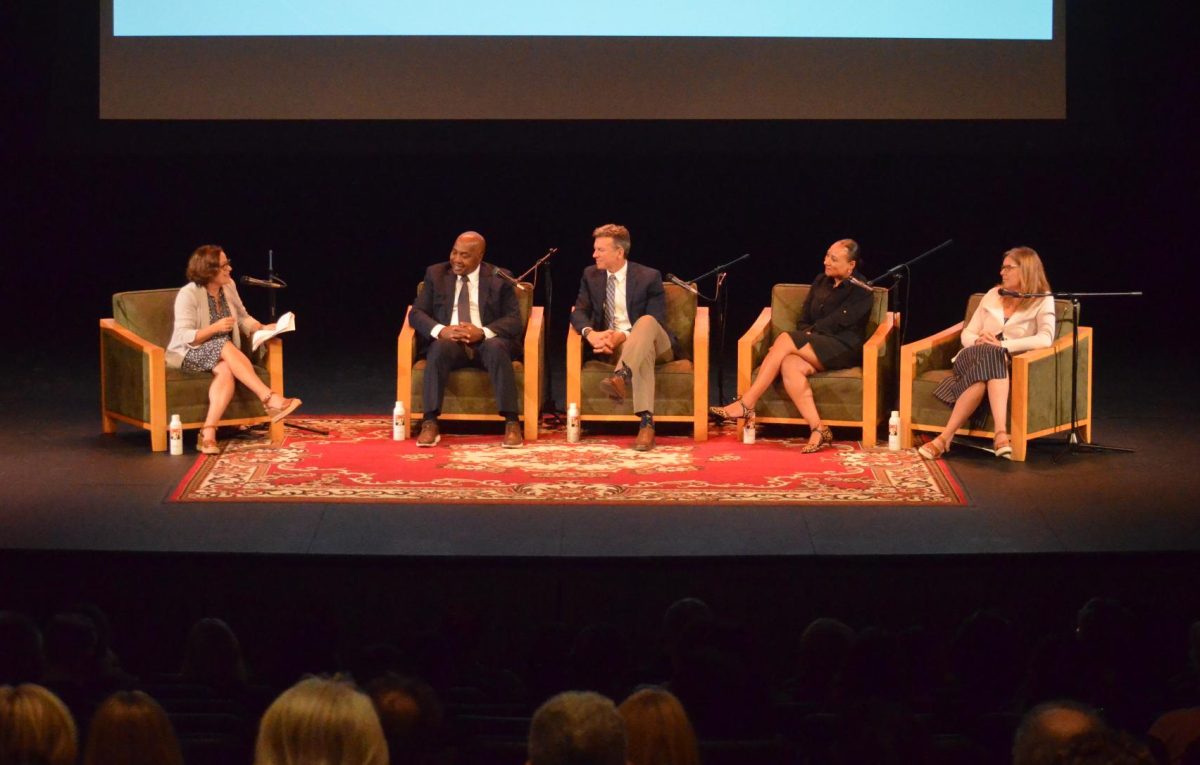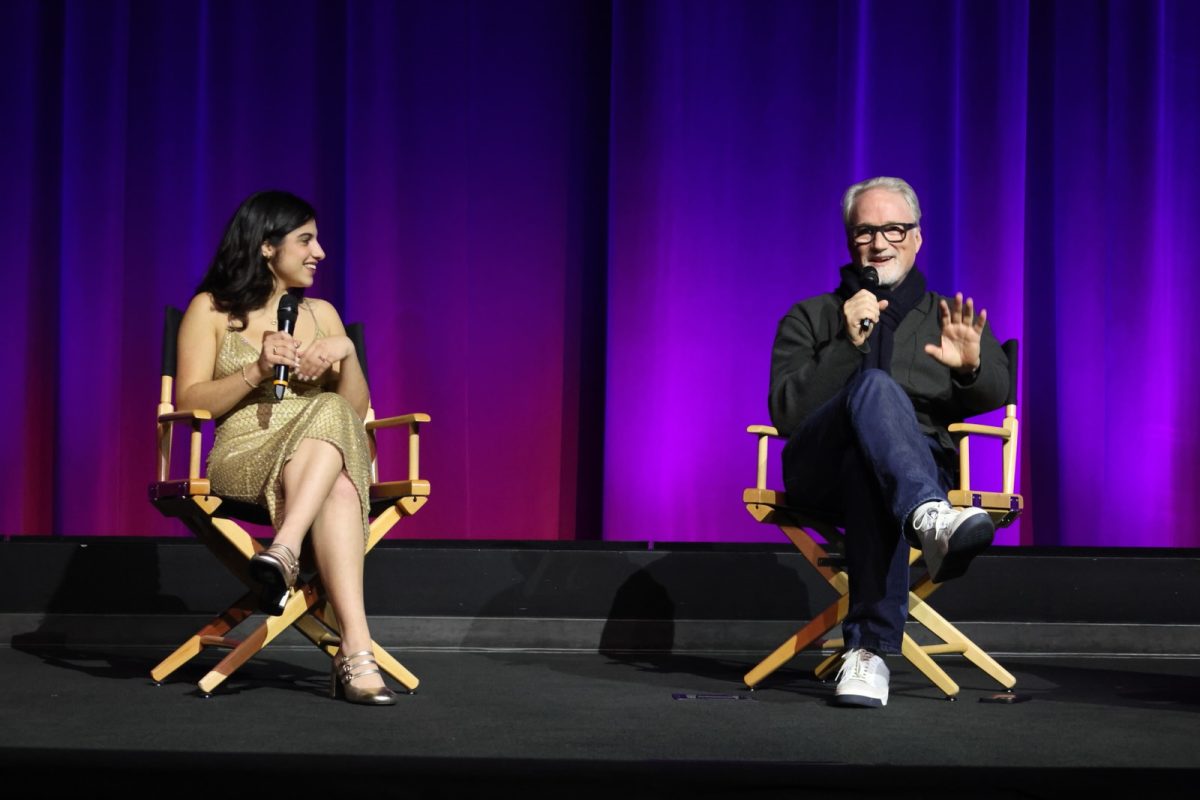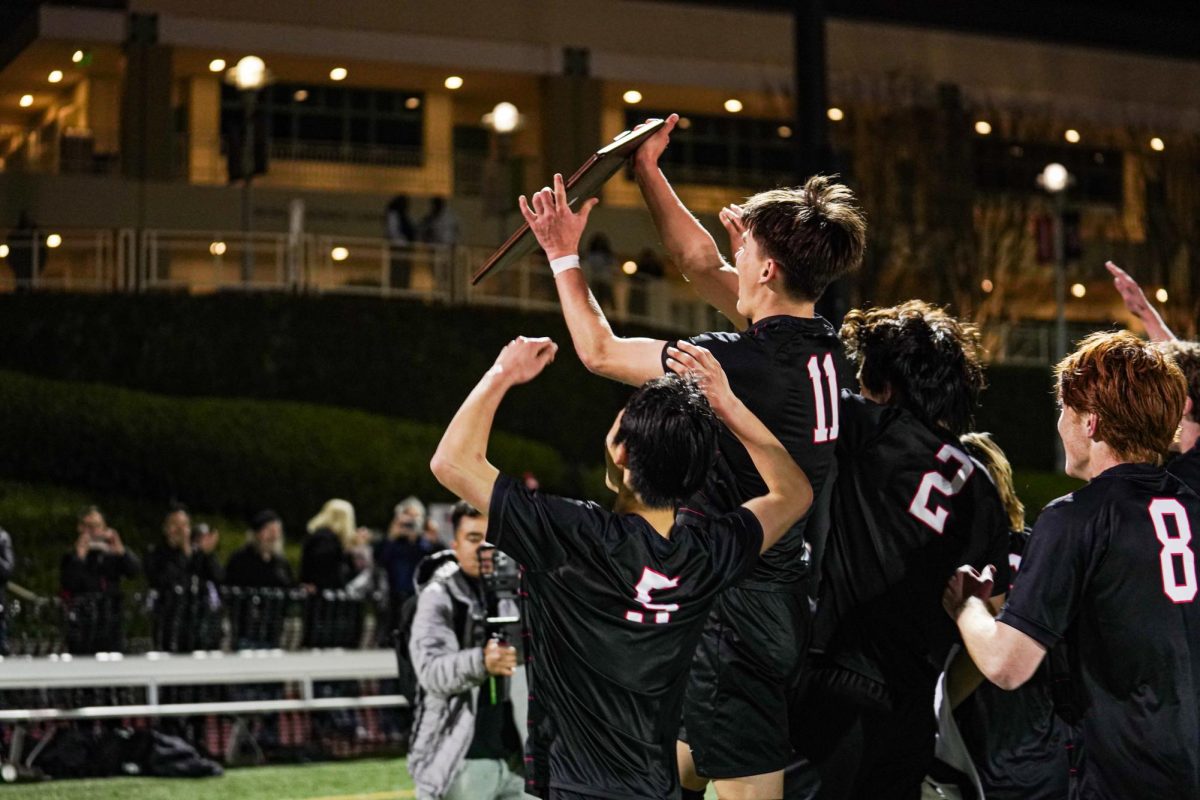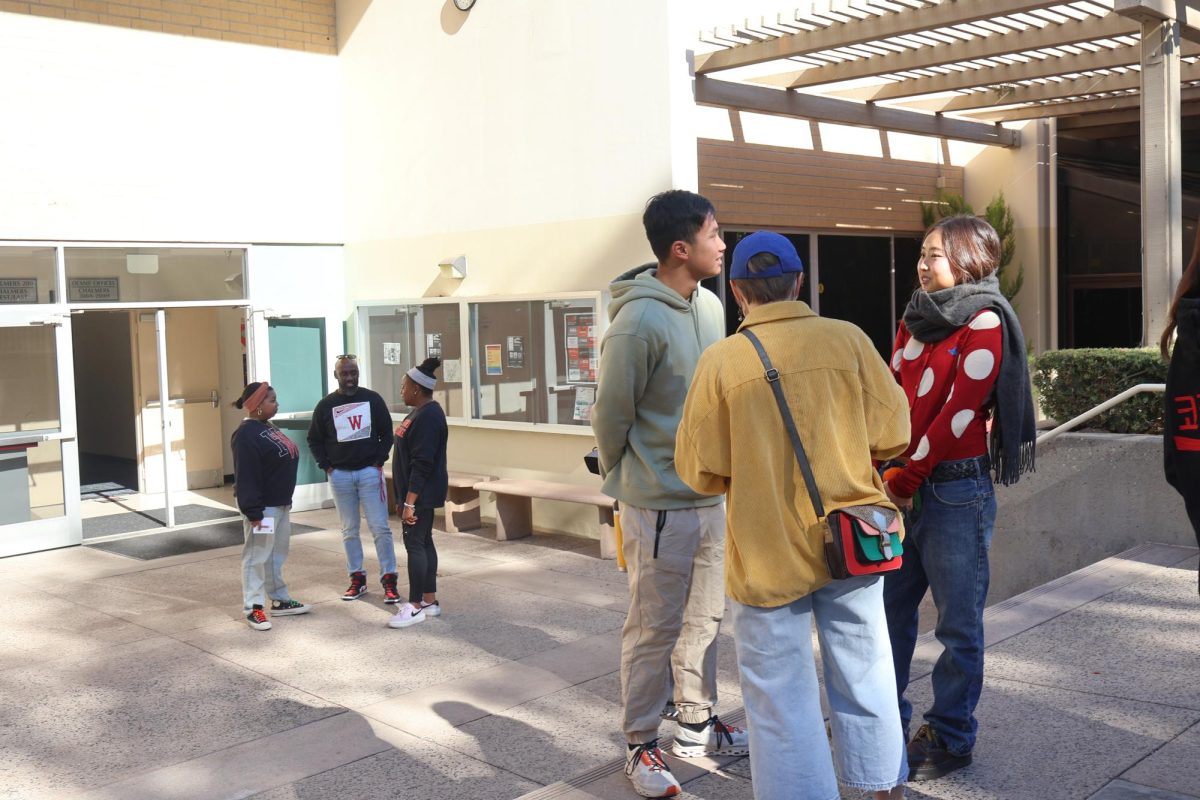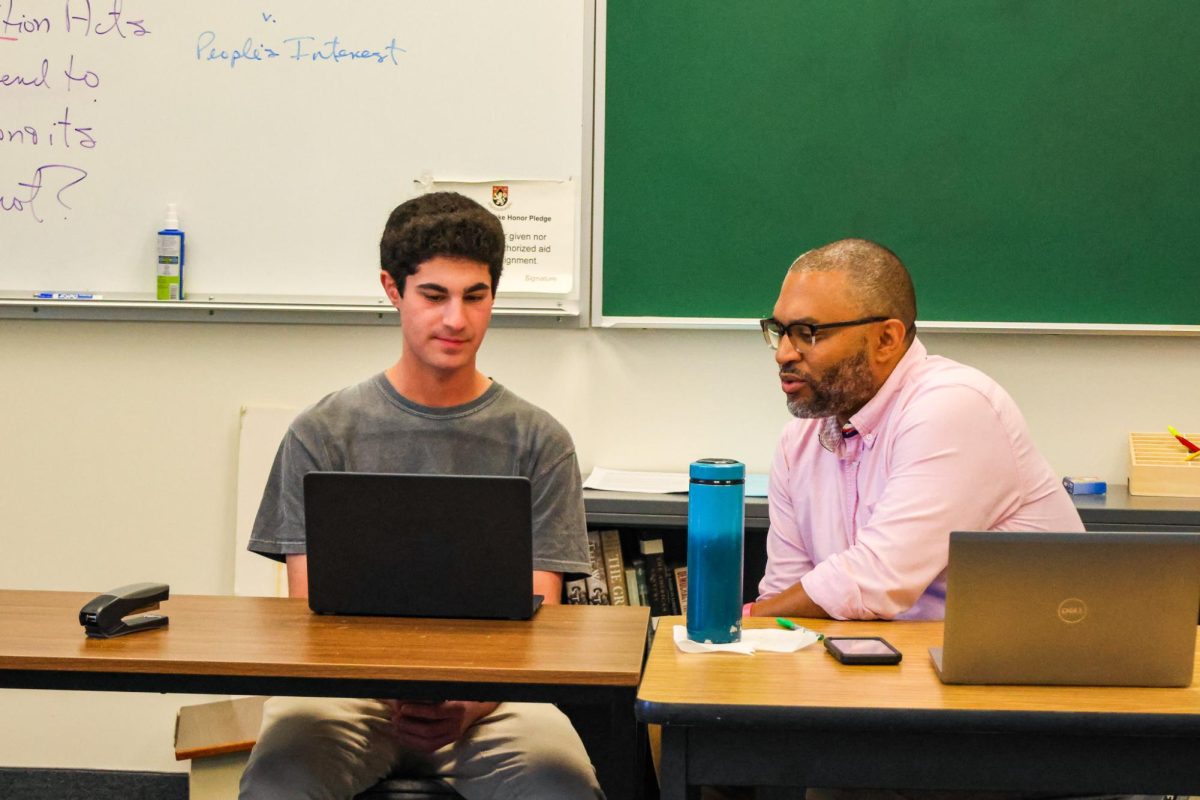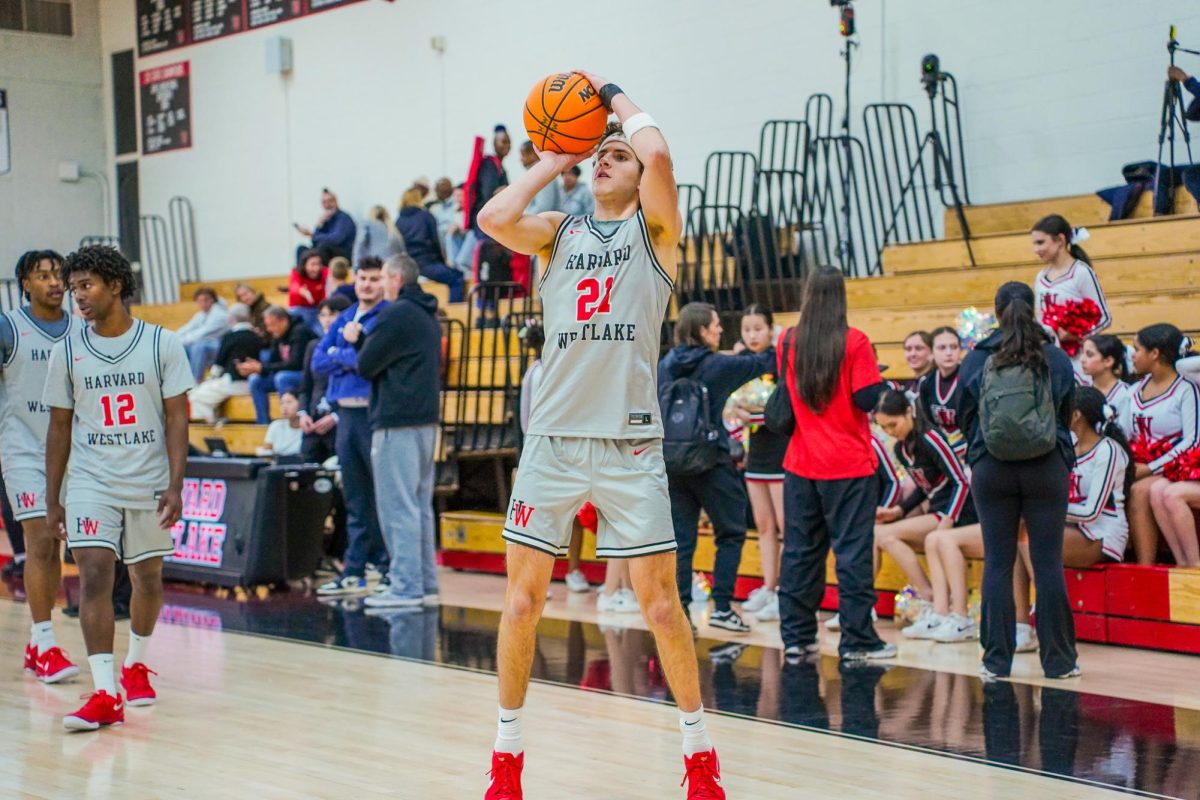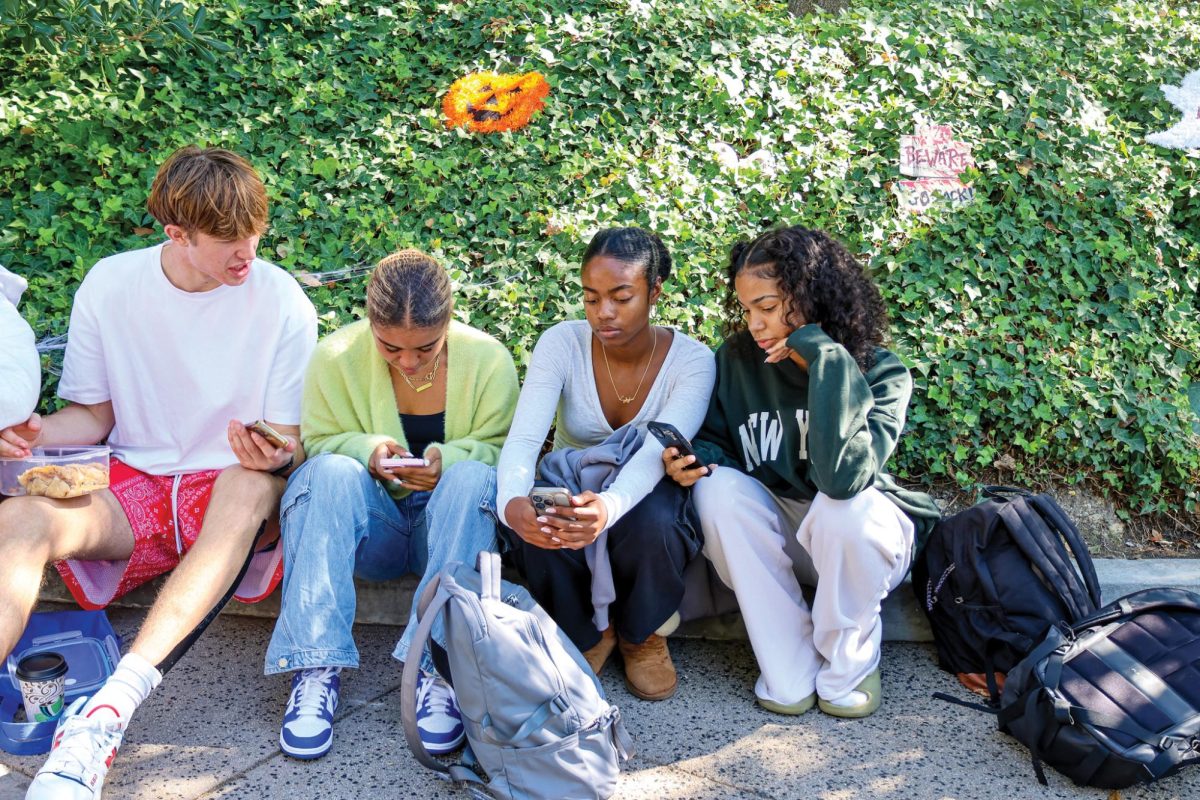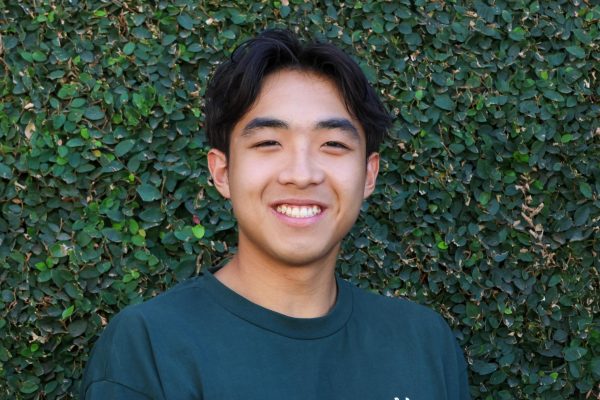Administration leaders kicked off the 2023-2024 school year with the Harvard-Westlake Parents’ Association (HWPA) sponsored State of the School Address and introductory reception at the Middle School on Sept. 14. Around 500 parents attended the reception which highlighted themes of student mental health and parental involvement in students’ lives.
The event began with opening remarks from HWPA President Katerina Minevich (Julian ’25, Lola ’22), followed by a speech consisting of three reflections of the summer from President Rick Commons. After Commons’ remarks, Head of School Laura Ross, Head of Athletics Terry Barnum, Head of Middle School Jon Wimbish, Assistant Head of School for Community and Belonging Janine Jones and Head of Upper School Beth Slattery continued the address with a pre-prepared question and answer (Q&A) session.
Commons said he wanted parents to feel a sense of trust in the steps school leaders take to improve the wellbeing of students and know that the school cares.
“I would like parents to take away that the school leaders care [and] that there’s an immense care for the experience of students,” Commons said. “I gave an opening talk and then I sat down as a parent of two Harvard-Westlake students looking at that array of panelists who were answering questions, and they were funny and wise and deeply caring. For me as a parent, sitting in the audience at that moment, I felt like my kids were very well taken care of, and I wanted that community to feel that way.”
Ross moderated the Q&A portion of the address, while Barnum, Wimbish, Jones and Slattery reflected on lessons from their personal experiences parenting former and current students.
Using an anecdote about her daughter’s experience in a field hockey state championship, Jones said it is important for students to feel a balanced sense of autonomy and parental guidance.
“It was a really big game for the field hockey team, and Taylor wasn’t playing as well as she could so the coach pulled her, and Taylor was devastated,” Jones said. “The coach had every right to pull her because she wasn’t playing as well. [Even though] they ended up winning, Taylor was in tears and we’re sort of trying to consult her but I never looked at that field hockey coach sideways. Sometimes you’re going to feel like the disappointment is justified and sometimes you’re gonna feel like it’s completely unfair, but just allowing [kids] to sort through and read through those issues on their own ideals is extremely helpful.”
Wimbish said parents can learn more about their children’s interests by remaining present in their lives.
“[Parents should] stay curious about [their] children,” Wimbish said. “I have learned so much from my kids who have taken and are taking a different journey through their lives than I took.I thought my childhood was pretty good. I wouldn’t mind seeing it replicated in my own children, and pushing them into places where I found fulfillment or satisfaction or joy. By staying curious, and taking an interest in their interests, as different as they may be, I have learned a tremendous amount.”
Wimbish said parents should not immediately distress over adolescent behavior as parenting requires patience.
“The results of what we do as parents may not be immediate and are often not,” Wimbish said. “Yet, we know that our children, though they might not seem they listen, are listening and [parents should] be confident of that. Somewhere around 12 and 13 years old, our children fire us as their managers and as soon as we come to grips with that as parents, we immediately apply to be their consultant.”
Slattery said parents’ appreciation of children for their authentic selves is the key to sincere parent-child relationships.
“I think [it is important to ] try to really love our kids and meet them where they are, even if it’s not everything we hoped and dreamed for them [or] even if they’re not like us,” Slattery said. “My son and I traveled to New Zealand this summer, just the two of us, to watch the Women’s World Cup. [I had] eight days with this beautiful boy with whom I adore and who adores me is magical and that’s because I loved him as he came to be.”
Barnum said parents demanding perfection from their children can be detrimental.
“I was in my 30s before I realized my parents weren’t perfect,” Barnum said. “[Perfection] was such an important thing for them because they had grown up in homes that weren’t perfect and they wanted to show that they were a united front and that they were perfect. Perfection is the enemy of good. I want [my children] to be good kids and I want them to be good people but if they’re focusing on being perfect, not only are they not going to get there, but they’re going to be unhappy along the way. So if I was not perfect, I don’t expect you to be perfect. I just expect you to try your best and f you can do that, you’re going to be okay.”
Minevich said HWPA is leading new initiatives this year to support students and families in the community.
“This year [HWPA is] committed to partnering with school leadership to find new ways to support the mental health and wellness of our students and families,” Minevich said. “With hopeful hearts, we start the school year with new programming for parents. HWP[A] established our own health and wellness committee. Its primary goal was to provide parents with [the] support and tangible skills necessary to succeed.”
Parent Kamran Fattahi (Arya ’25) said many parents attended the event to hear administrators address school initiatives and give advice for the coming school year.
“I think the main topic on a lot of people’s minds is the stress that our students have to deal with, and what parents can do and what school teachers can do to alleviate and manage the stress so that they can handle their academics and other activities in school in the healthy [and safe] environment,” Fattahi said.





























